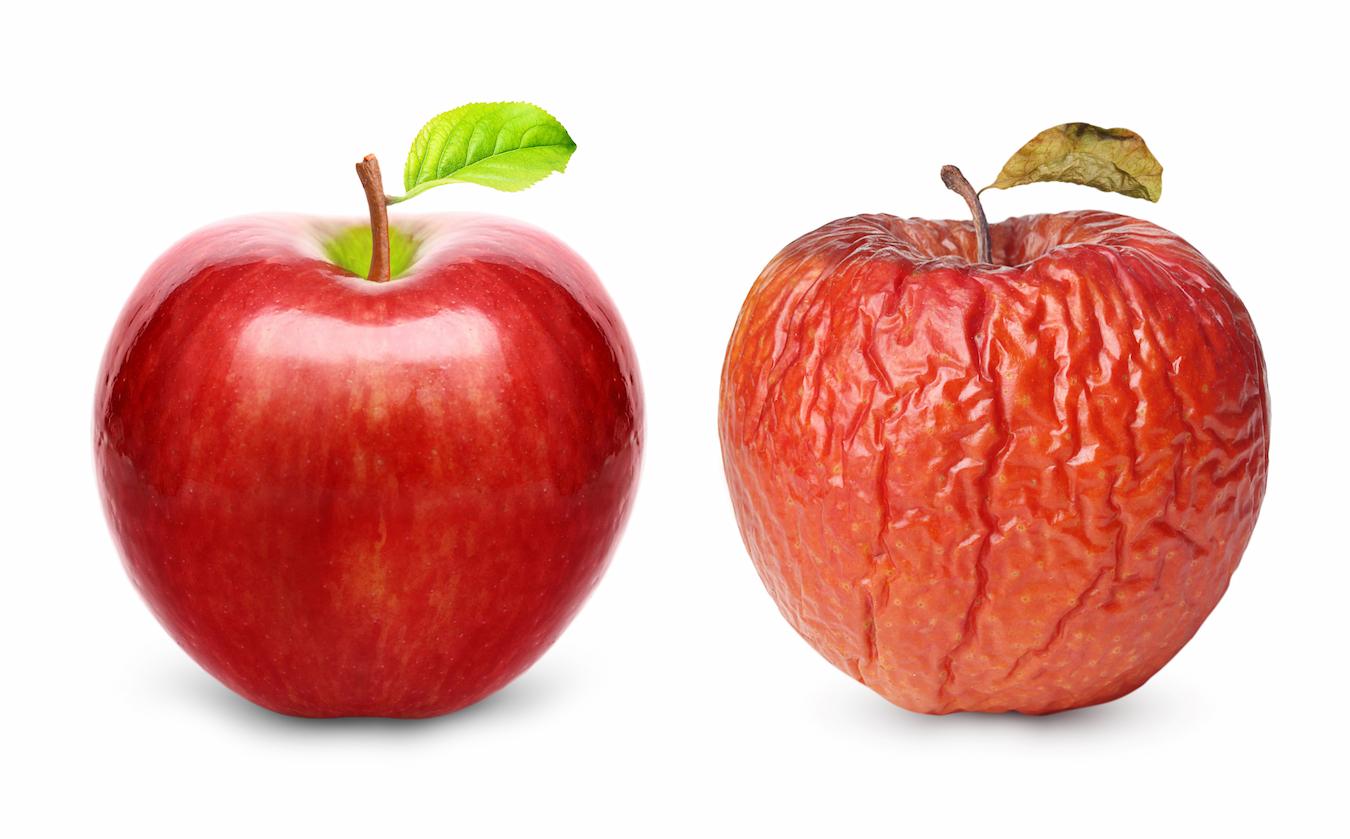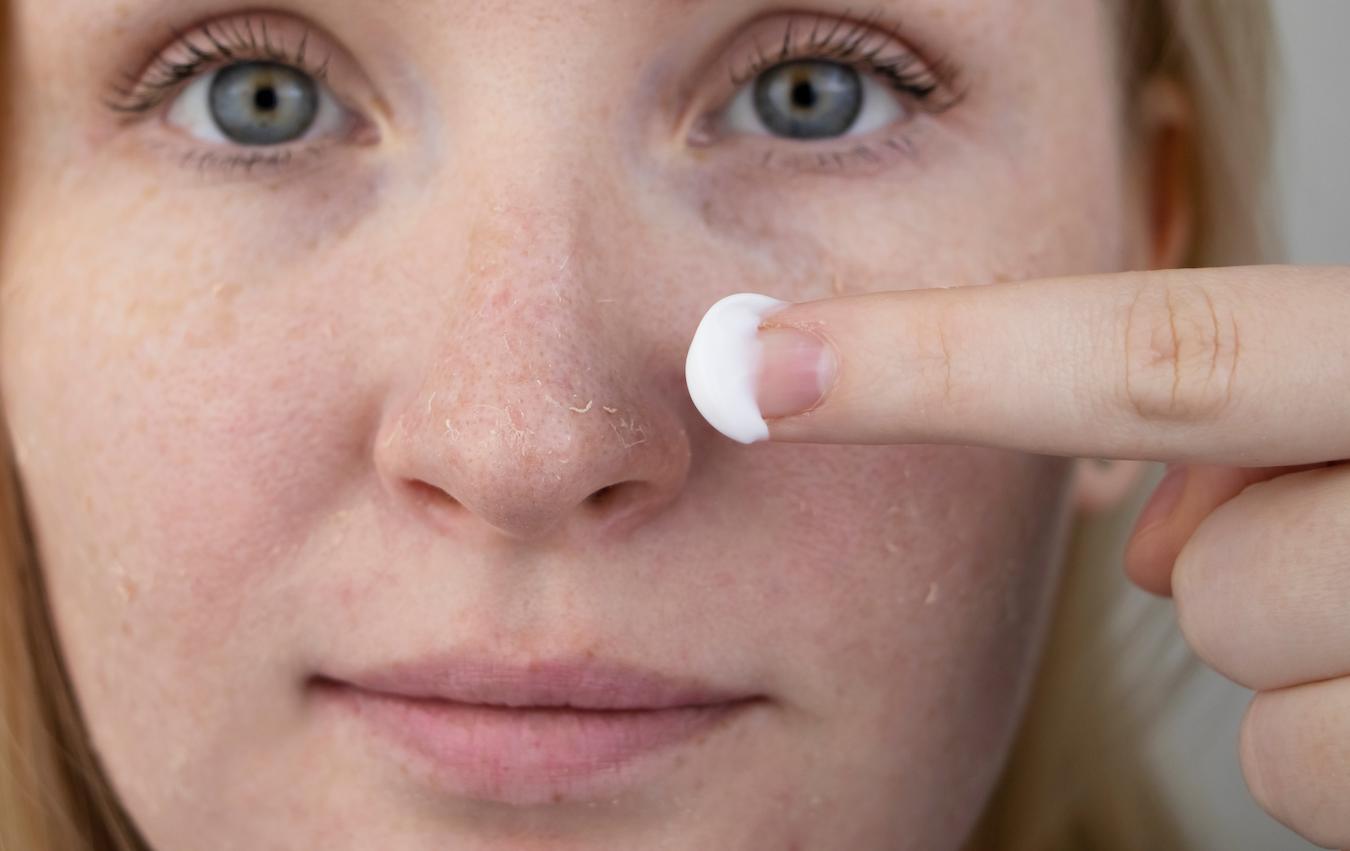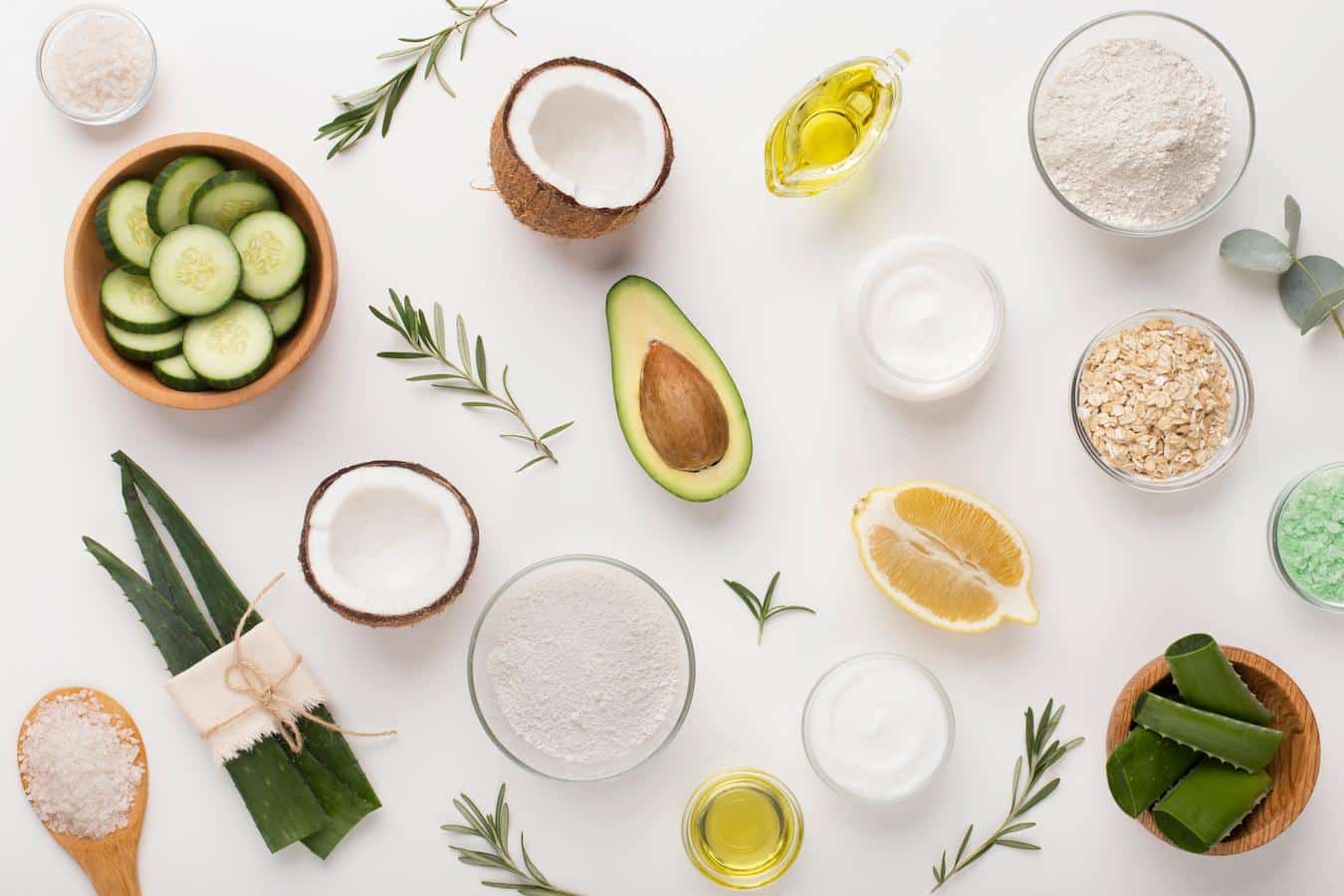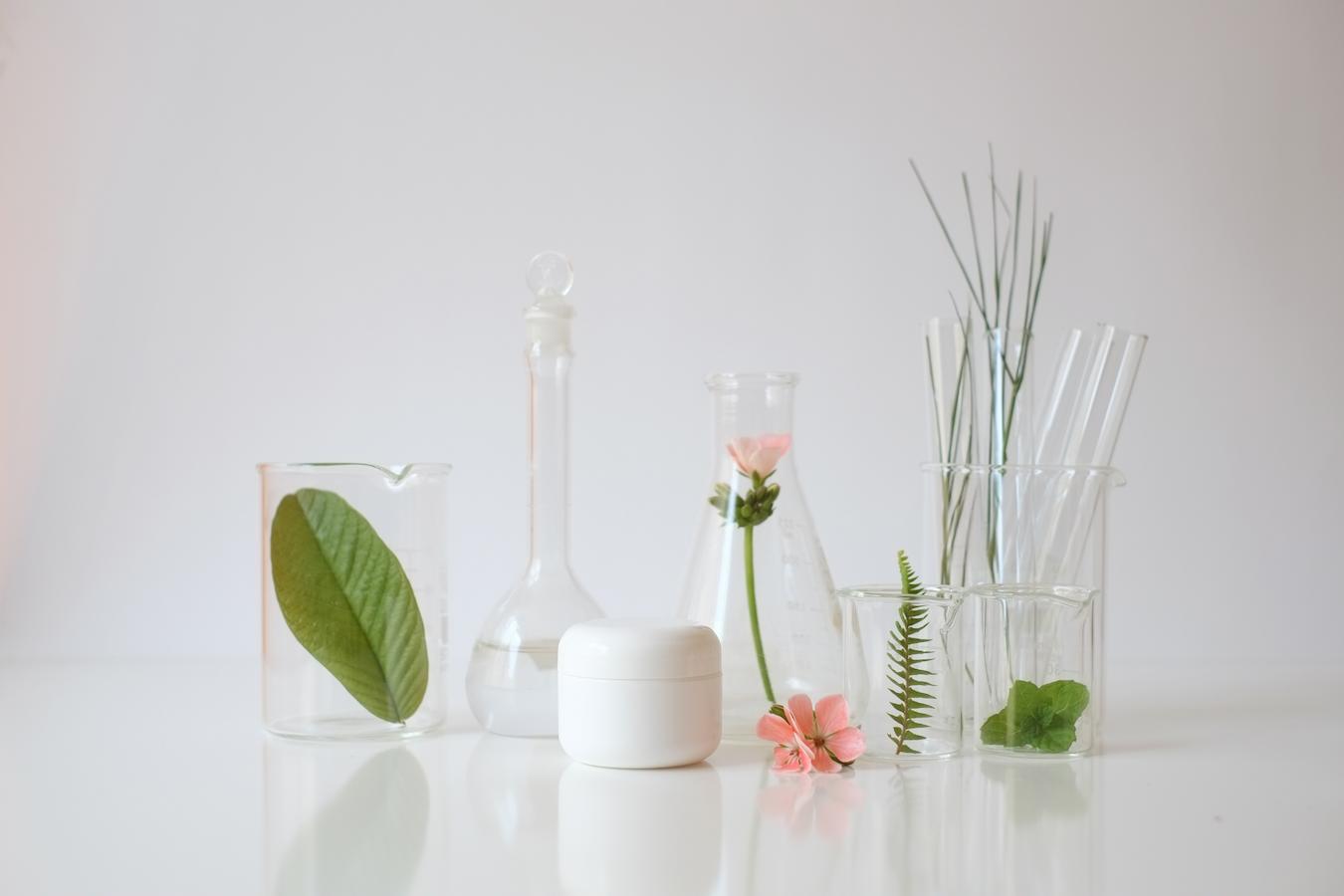Which Ingredients Can Be Used To Treat Dry Or Dehydrated Skin?

Dehydrated or dry skin will not respond to the best skin care treatments, no matter how good they are. When it comes to skincare, the order in which you use your products is critical to getting the best results possible.
Your skin type, the products you use, and the sequence in which you apply them should all be considered while deciding on a skincare routine. Thinner products cannot penetrate thicker ones, therefore it’s a good idea to apply them sequentially from thinnest to thickest. In this way, you’ll have the best result.
Keep reading this post as we’ll be taking you through the benefits of these ingredients, and how to adopt a good skincare routine!
See Related: Why Are My Lips Always Dry And Peeling?
What is the Difference Between Dry and Dehydrated Skin?
You can tell whether someone has dry skin just by looking at them. There is no oil visible on the surface of dry skin; it feels dry and tight and lacks moisture. The amount of oil glands present in your skin when you are born determines a great deal of these characteristics.
Even though dry skin and dehydrated skin may look and feel similar, there is a big difference between the two. Just like when you get thirsty due to lack of hydration, dehydrated skin lacks water, too.
For the most part, dry skin doesn’t stay dry for long periods of time. Instead, it comes and goes in a regular manner.
Skin oil might range from a normal amount to an abnormally high volume when it comes to this condition. Even if you have more oil on your face, your skin still feels dry, and it often flakes on top of all of these other problems. Not only was it infuriating, but you were probably aware of it as well.
If you feel like an oily layer is laying on top of your skin, you most likely have dehydrated skin.
What Causes Dehydrated and Dry Skin?
The most common cause of dry skin is the use of harsh skincare ingredients. Other substances might upset the natural balance of the skin’s flora, which could lead to skin barrier damage.
Acne may also occur if you use products that don’t match your skin type. Dehydration is the skin’s way of telling you that something is wrong.

Skin irritation may result from denatured alcohol (also known as SD alcohol), as well as menthol, peppermint, and scents (natural or synthetic) drying out the skin’s surface. To make matters worst, as a result of this increased oil production at the pore’s base, the skin will become greasier and more susceptible to clogged pores.
How to Treat Dehydrated Skin
Follow these tips and skincare steps and you will be well on your way to healthier, hydrated skin. Fortunately, there’s several methods that are effective for combatting dry skin.
Always moisturize!
If you have dry skin, the answer may be obvious. Since there is no one way to fix dry skin, you have to be careful about what you put on your face. The key though, is to consistently moisturize dry skin.
The ideal choice for your skin, according to dermatologists, is a product with higher oil content. Why? Because dry skin lacks oil.
With more oil in the formula, moisturizers tend to be thicker than the average lotion. This is because they give the skin more hydration.
Since moisturizers are thicker and stickier than other lotions, they are a little more difficult to apply. As they’re more effective than other lotions in keeping the skin from drying out or stripping your skin’s natural oils, they are a better choice.
Unless you have very sensitive skin, a regular, water-based moisturizer is the most efficient way to provide moisture to your skin. Creams include preservatives to help prevent the fast growth of germs that might occur when water is present. These preservatives, on the other hand, may cause allergic reactions or irritation in those with sensitive skin.
Moisturizing should be avoided if you have sensitive skin. To avoid the need for chemicals, try using oil or ointment instead!
Use replenishing skincare ingredients.
When it comes to taking care of your skin, it’s just as important to think about what goes into a product as it is to think about the product itself. Dermatologists recommend staying away from products with fragrances and looking for ones with active ingredients like copper peptides, ceramides, hyaluronic acid, oats, and lipids. Using and applying water-based products are essential!
If a product says it will “hydrate” your skin, you should never buy it if it smells bad. This is the one thing about the product that you should avoid more than anything else.
Even though these products are fun to use and smell great, they don’t do much for you. When you use a lotion with a nice smell, it’s easy to get hooked on the idea. They create red and irritated skin, and they are likely the main reason.
Don’t take long, hot showers.
In fact, avoid hot water on your skin. In theory, hot water seems like it helps relieve your skin, but in reality, it can leave your skin feeling tight and cause extra dryness and damage especially during the winter months.
Even though you might think it would be nice to take a long, hot shower, you should do everything you can to avoid it. Dermatologists say that the water should be warm, but not too hot and that you shouldn’t stay in the pool for more than 10 minutes at a time. It’s possible that taking longer showers in hotter water could make you feel more dehydrated than you would otherwise.

When you’re done taking a shower, pat your skin with a towel until it’s almost dry but still has a little bit of water on it. After that, use a moisturizer that will keep your skin hydrated and healthy.
Since some of the water from the shower is still on your skin, one of the best times to put moisturizer on is right after you get out of the shower. The best thing to do would be to try to “seal that extra water into the skin.”
Avoid scratching your skin.
Eczema-like symptoms, such as itching and irritation, are common in dry skin. You should make every effort to refrain from picking or scratching at your skin. However, if the condition does not improve, you should see a dermatologist for appropriate treatment.
Use fragrance-free laundry detergent and wear non-irritating garments.
Since our skin is so dry and prickly, our clothes and detergent may not feel comfortable to us. Avoid this by wearing a cotton or silk tank top under any wool or rough-textured clothing. Use only detergents labeled “hypoallergenic” while washing your clothes.
Maintaining a healthy skin and body temperature doesn’t require gathering around a fire.
Long periods in front of an open flame or another source of heat may cause your skin to become dry and flaky. There are other mild skin humidifiers you can use.
Make sure the humidifier is plugged in before you begin using it. Your heating system should be checked out to see whether it has a humidifier built in and if it is working correctly.
If you find yourself suffering from dry or itchy skin, or a specific skin condition like eczema, be sure consult a board certified dermatologist!
Bonus: 16 Best Toners For Every Skin Type To Buy In 2022
5 Skincare Ingredients to Use for Dry or Dehydrated Skin and Their Benefits
1. Hyaluronic Acid
Let’s start with hyaluronic acid, which is often thought to be one of the best ways to keep skin moisturized in skin care products. Your body makes its version of this substance, which keeps your skin, joints, and connective tissues from drying out and getting brittle.
Since it is a humectant, it can draw moisture from the air and from deeper layers of the skin to make it look fuller and healthier. The water is then put directly on the epidermal cells (the outermost layer of skin). It can hold almost a thousand times as much water as it does.

It’s been there for a very long time, but in the last few years, it’s become a lot more popular thanks to more coverage in the media. After one person thought it might help, everyone else started taking hyaluronic acid or using a hyaluronic acid moisturizer, so that person must have been the first.
Hyaluronic acid has been getting a lot of attention lately, which has led many people to think that it is the best way to keep the skin moist. Even though it does a lot, it gets too much praise.
When it comes to great moisturizing skin care products that are now on the market, you do have a lot of choices. Some of them even have extra benefits, and depending on your skin type, some of them might work better than others.
Hyaluronic acid is generally well tolerated by all skin types, but there may be a downside. It could make your skin very dry if you use it in a place with very little moisture in the air, like a very dry area.
This is not a joke of any kind! This happens because hyaluronic acid can pull water from the deeper layers of the skin. It can’t “sandwich” the moisture by pulling water out of the air to do the opposite, so the water evaporates.
Hyaluronic acid and other light-filtering chemicals can be used to stop this from happening. Occlusives are substances that block skin pores and stop air from getting through. This stops any water loss and any moisture loss that might have happened.
2. Sodium Hyaluronate
Sodium hyaluronate is an alternative for people who prefer the saltier form of hyaluronic acid. Unlike hyaluronic acid, it helps the skin return to normal moisture levels by promoting the growth of new skin cells (it also binds up to 1,000 times its weight in water). Sodium hyaluronate penetrates the skin more efficiently than hyaluronic acid.
In salt form, oxidative reactions are less likely to occur. As a result, it is more stable than acid since it is less water-soluble.
Moisture barrier breakdown may lead to dehydrated skin, and this ingredient may help. These symptoms seem to be more prevalent in those who live in dry climates or who spend a lot of time outside in the sun.
Additionally, hyaluronic acid’s side effects may be present. If the product is used in very dry conditions, irritation may develop. Mixing it with anything that absorbs sunlight may help prevent this.
3. Glycerin
Glycerin is another well-known humectant. It’s also the most often used. Sugars and plant oils may be fermented to produce it either synthetically or naturally.
It does this by delivering moisture to the epidermis for absorption from the ambient and the deeper layers of the skin. Skin appears and feels like it’s floating, with a dewy and radiant radiance.
Contrary to hyaluronic acid, glycerin molecules are more readily absorbed by the skin since they are smaller. This is where glycerin has an advantage over hyaluronic acid.
In reality, the water within cannot evaporate, but that does not mean it cannot be used. Glycerin and occlusive substances, such as hyaluronic acid and sodium hyaluronate are essential for keeping the skin’s water locked in.
4. Tremella Fuciformis
The fruit of the Chinese Silver Ear Mushroom contains a polysaccharide known as Tremella Fuciformis. This sugar helps the body retain water. Another name for it is the “silver ear mushroom,” which is a kind of fungus.
Considering that it can store 500 times its own weight in water, it’s an excellent humectant. Hyaluronic acid is known by many different names. However, the word “natural” or “tremella hyaluronic acid” refers to the same substance.

For more than just the fact that it keeps your skin well-hydrated, this ingredient is one of the favorites of many. Anti-inflammatory and antioxidant properties of Tremella fuciformis have been discovered by researchers, however, the process by which these properties function is yet unknown.
The polyphenols and flavonoids in the extract, which are high in antioxidants, may be the cause. Both of these compounds may be found in the extract.
5. Panthenol
Panthenol is a vitamin B5 precursor, which means that it is converted into vitamin B5 by the body when it is consumed. Even more importantly, it helps the skin maintain its natural moisture and soften the skin.
This means that it may help the skin’s cells suck in and retain moisture, which is a good thing. What exactly does it imply? The moisture barrier that is present in the skin functions more effectively, and as a result, the cells of the skin get more water.
FINAL THOUGHTS
After adopting a regular skincare routine, you should notice a remarkable improvement in the quality of your skin almost immediately. However, if these changes do not improve your issues, you should see a dermatologist.
Using a vegan cream or lotion may be recommended by your doctor if your skin is really dry. One thing you should avoid doing is experimenting with skin care products on your own.
This is a big NO. Asking for medical advice from a dermatologist is still the best way to keep your skin healthy and safe from any harmful substance.
Keep Reading: What Is The Best Exfoliator For Mature Skin?
—
For over 60 years, Viviane Woodard has represented “The Purity of Skincare”. We are the leading beauty brand for skin care products and promote the importance of good skin hydration. Follow us on Facebook, Instagram, Twitter, and Pinterest for skin care tips, product discounts, and more.